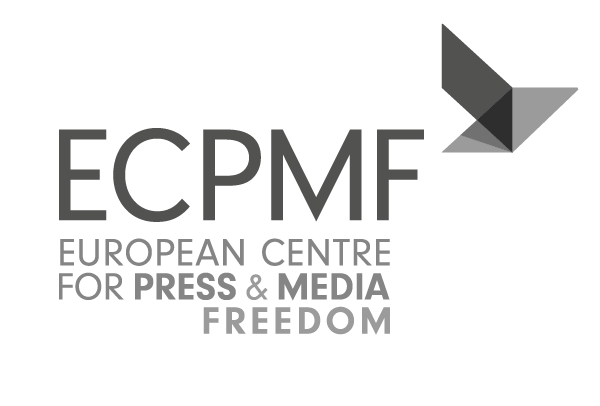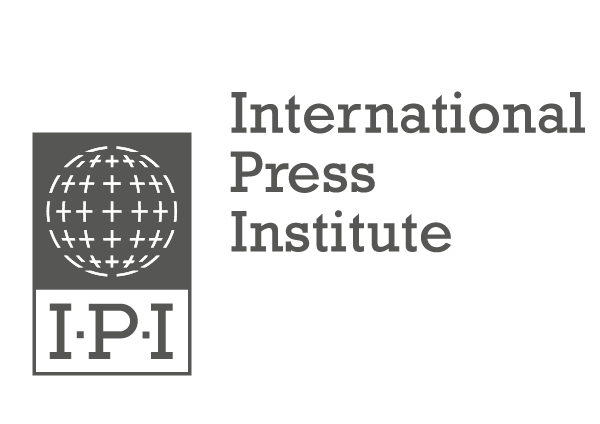by Renata R.
The Journalists’ Association of Serbia (UNS) and Serbian public broadcaster Radio Televizija Srbija (RTS) are organising an international conference to commemorate the bombing of RTS by NATO airplanes during the Kosovo War in 1999.
The conference, which takes place on 23. April 2019, aims to give journalists, media professionals and human rights activists an opportunity to discuss growing threats against the free press in Serbia over the past two decades. The speakers include ECPMF board member Ljiljana Smajlovic and the Serbian President Aleksandar Vucic. This event takes place in the shadow of growing tensions among Serbian civilians, the government and several media outlets. On the agenda for the occasion are the murders of journalists over the past 20 years, and the apparent impunity for these crimes.The ECPMF will post a link to more conference details as they become available online.

Flag of Serbia. Photo: Creative Commons.
The protests
For months, thousands of citizens and opposition politicians from all political ideologies have been protesting against the Serbian government and demanding President Vucic’s resignation. But this is not a spontaneous civil society movement, and the background of the protest leaders demands further scrutiny.
The so-called 1of5million movement spread from the capital Belgrade to many other cities and towns all over Serbia, taking place every Saturday. The biggest demonstration so far is planned for 13. April 2019.
The protests were triggered by an incident in November 2018, when an opposition politician, Borko Stefanovic, was attacked and beaten up in the south Serbian town of Krusevac. They addressed many issues of concern to the Serbian people since the election of Aleksandar Vucic as president in 2016.
The former hardline nationalist used to be Information Minister under the rule of Slobodan Milosevic. He passed laws that significantly limited press and media freedom during that time. But as President of Serbia, Vucic has in recent years been recasting himself as a pro-European politician and reformer who, at the same time, still maintains friendly ties with Russia. He even established a commission to investigate journalists’ murders; and at the 2019 World Economic Forum in Davos, he joined Matthew Caruana Galizia – whose mother Daphne Caruana Galizia was murdered in Malta – in a debate on how to protect the safety of journalists.
The 1of5million protesters accuse Vucic and his Serbian Progressive Party of creating an atmosphere of political violence and monopolising power to a degree not seen since the rule of Milosevic in the 1990s. They cite declining levels of human rights, rising political pressure and violence against journalists and the free press, and call for transparent elections and unbiased public media.
Even though the protesters have one main common demand – asking President Vucic and his government to step down – they couldn’t be more different from each other. The protests have been supported by several professors from Belgrade University and opposition parties from all political sides. They all follow different ideologies: there are liberal, pro-West and pro-European ideologies, but also pro-Russian and far-right nationalist ideologies.

Thousands of Serbs are protesting against propaganda, pressure and attacks on independent journalists, and against President Vucic’s strongman style of government. Photo: Visekruna Djordje
Difficult times for the media in Serbia
One politician who joined the protests is Bosko Obradovic, head of the far-right movement Dveri. On 16. March 2019, he and other protesters – one of them reportedly carrying a chainsaw – entered the building of the Serbian national broadcaster RTS. They demanded that protesters be allowed to speak live on air on RTS television. That didn’t happen, and they were dragged out of the building by the police. At least 18 people were arrested.
The atmosphere concerning media and its representatives in Serbia is tense. On 2. April, Bosko Obradovic, together with other protesters and opposition politicians, blocked the entrance to the Belgrade City Assembly. When Jovana Jovancic, a reporter from PRVA TELEVIZIJA, asked Obradovic a question, he wouldn’t answer and instead insulted her and accused her of being a bot of the leading Serbian Progressive Party. After that incident, the insults continued on social media.Protesters were expected to march towards PINK!, a TV channel critics say is pro-government, on 3. April. The march to the TV station didn’t happen in the end, but some protesters laid a wreath in front of the building to commemorate the politician Oliver Ivanovic, because they saw him as “a victim of the TV station’s propaganda”.
Ivanovic was a Kosovo Serb. He was seen as moderate and advocated for a peaceful coexistence between Kosovo’s Serb minority and the Albanian majority. On 16. January 2018, he was murdered in front of his party’s office, in the north of the divided town of Mitrovica in Kosovo. The perpetrators are yet to be identified.

Ljiljana Smajlović describes how the media report on refugees in Serbia, and how some journalists have been attacked by police. Photo: Ljiljana Smajlović
Blurred lines between the truth and ‘fake news’
Another case full of inconsistencies is the alleged kidnapping of Stefan Cvetkovic. He is an investigative journalist from Bela Crkva in northeast Serbia. He was reported missing on 13. June 2018. Shortly before that, he had been investigating the murder of Oliver Ivanovic as a reporter.
Two days later, President Vucic announced that Cvetkovic had been found unharmed. Subsequently, the journalist made a statement about what happened. It was full of contradictions and unclear details. But instead of a competent prosecutor, it was Vucic who revealed the results of a preliminary investigation: the president claimed that Cvetkovic had staged his own kidnapping. That incident lead to some Serbian ministers speaking of a conspiracy and the intentional proliferation of ‘fake news’. They proposed a working group to combat disinformation.
ECPMF partner Osservatorio Balcani e Caucaso Transeuropa says that there are concerns that state officials who fight ‘fake news’ while disseminating disinformation themselves might use Cvetkovic’s case as an excuse to label “every legitimate criticism… part of the conspiracy.
“ECPMF Advocacy Officer Nora Wehofsits adds:
It is to be avoided that in the future other threats and acts of intimidation against journalists are not taken seriously if they are being compared to Cvetkovic’s case. We hope that the upcoming conference may contribute to a constructive dialogue in this tense situation and may help to reinforce press and media freedom in the country.
The 1of5million movement is planning its biggest demonstration so far for 13. April 2019, if its demands are not met by then.





